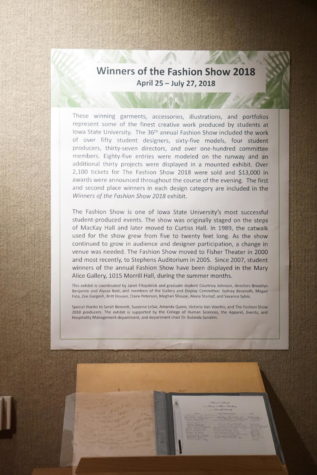Balance life, manage stress in college
School can be mentally straining and learning a few tips and tricks can help decrease the added stress of being a college student in today’s society.
September 3, 2014
High school students had the “go to college” hammered into them, but were may not have been told how college can impact mental health and stability.
Without knowing that chronic stress is actually one of the biggest health problems facing college students today, some may not be mentally prepared for upcoming semesters.
Fellow upperclassmen Linda Meraz and Megan Gardner advise other students on things their high school counselors never mentioned, hoping to decrease the added stress on new students.
“Save money,” said Meraz, junior in business and Spanish. “You get told that college is expensive but [high school counselors] never said, ‘You should go get a job over the summer and save.’”
Gardner, senior in psychology, continued by explaining the importance of knowing which universities would benefit one’s future professional career.
“I was never told that it mattered what college you wanted to go to and what you wanted to do with your life, which is why I had to transfer colleges as a senior,” said Gardner.
Looking back at past experiences, there were moments and lessons both students learned as freshmen that guided them through today’s choices.
Meraz and Gardner advise freshman not to take an 8 a.m. class during first semester and to start off with 12 credits in order to test the waters before jumping right in.
Christine Wise has been an academic adviser at Iowa State for 14 years and advised students to stay consistent with their professional career while balancing extracurricular activities.
“Time management is huge,” Wise said. “Students see 800 clubs that they could get involved in and they’re going to have to balance the extracurricular as well as the academic as well being able to work and being with your friends.”
Along with time management, Gardner stressed the importance of building your professional reputation for the future while keeping track of homework and exam dates on Blackboard.
Both Gardner and Meraz encourage their fellow students to join clubs, network and build their way up in whatever they decide to be involved in.
“You’ve got to get into something,” said Gardner. “If you’re a psych major, getting into a lab as a research assistant is huge if you want to continue your education. I wish I would have done this as a freshman.”
There are also many tools students can take advantage of during their years at Iowa State to help mentally prepare them for the work ahead.
“Try to study as you go rather than cramming because there are high expectations at this level, with much less handholding than high school,” said Katie Pesch, ISU graduate student and counseling psychologist. “Try to enforce structure on your studying whether you’re using a calendar or planner.”
When tests, quizzes and finals come around, Gardner said it’s important to find ways that benefit the individual’s studying skills.
“I love the app StudyBlue,” Gardner said. “It runs you through questions and it provides flashcards.”
Meraz also advises students to take advantage of supplement instruction sections that help students prepare for upcoming exams and explains the importance of engaging in class rather than being a passive recipient of material and resources.

















